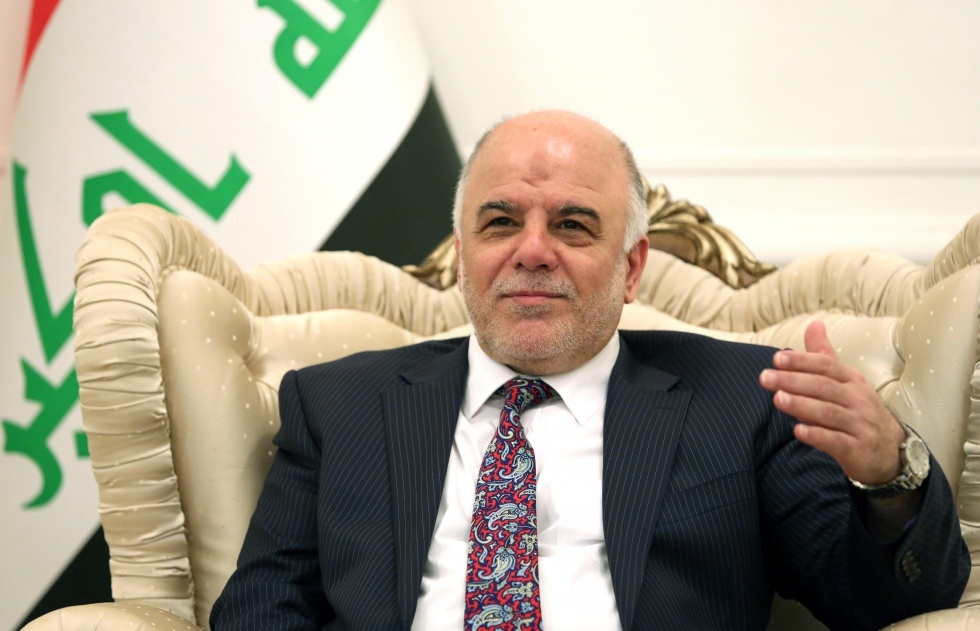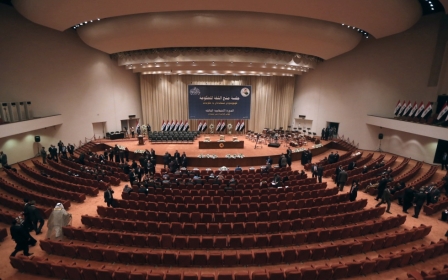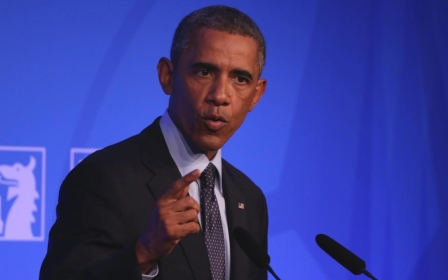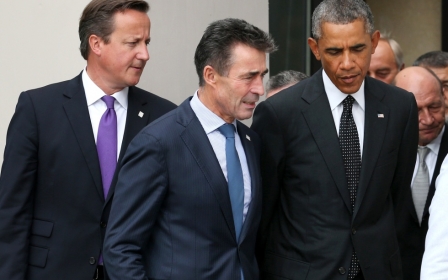Iraq's new cabinet faces major security challenges

Iraqi MPs approved a new cabinet on Monday but key security posts remained unfilled, and the new premier Haidar al-Abadi faces the challenge of presenting a united front against militants led by the Islamic State (IS), who have seized much of the country's Sunni heartland.
US Secretary of State John Kerry, speaking a few hours before leaving on a mission to solidify the front against IS, praised the "new and inclusive" Iraqi cabinet as a "major milestone".
"Now is the time for Iraq's leaders to govern their nation with the same vision and sense of purpose that helped to bring this new government together," he said.
UN Secretary General Ban Ki-moon also welcomed the new government as a "positive step" but urged politicians to quickly choose new defence and interior ministers.
"The Secretary-General calls on all Iraqi political leaders to build on the current momentum of collaboration to ensure that a decision is made without delay on the pending appointments of minister of defence and minister of interior," said a statement from his spokesman.
The crucial parliament session opened to chaotic scenes, with speaker Salim al-Juburi struggling to maintain order and many MPs absent.
Eventually, 289 out of 328 lawmakers showed up and helped approve three deputy prime ministers and 21 ministers, but key posts -- including the interior and defence posts -- remain unfilled.
Abadi has asked for a week to fill them, and will run the ministries in an acting capacity until then. The last government also started with key positions empty and acting ministers ended up filling them for four years.
In a sign of the delicate balancing act required to paper over Iraq's deep sectarian and factional divides, three fierce rivals were also approved as the country's new vice presidents: former premiers Nuri al-Maliki and Iyad Allawi, and ex-parliament speaker Osama al-Nujaifi.
Other key appointments to the new Iraqi government on Monday including former vice president Adel Abdel Mahdi as the new oil minister, former prime minister Ibrahim al-Jaafari to the foreign ministry, and former deputy premier Roz Nuri Shaways as minister of finance.
Saleh al-Mutlak will continue as deputy prime minister, while the other two deputy premier posts went to ex-foreign minister Hoshyar Zebari and MP Baha al-Araji.
Shiite-dominated cabinet
The cabinet is so far dominated by Shiite Arabs and includes only one woman.
Iraq's Kurds -- who control an autonomous region and are at odds with Baghdad over issues including territory and division of the country's vast natural resources -- only took part at the last minute.
Their MPs were still waiting for word from their leaders in the northern city of Sulaimaniyah when parliament opened, and were waiting in the cafeteria.
They later arrived in the chamber, and Kurdish MP Ala Talabani announced during the session that the Kurds would participate in the government on a three-month trial period. They received two ministries and a deputy premiership.
Abadi on Monday pledged to resolve disputes with the country's autonomous Kurdish region.
"My government is committed to solve all suspended issues with the Kurdistan Regional Government," Abadi said in a speech to parliament outlining his proposed government programme.
Kerry was set to leave the United States on Tuesday on a trip to Jordan and Saudi Arabia as part of efforts to build an international coalition to counter the IS militants.
A State Department spokeswoman said more than 40 countries have already indicated a willingness to help in some way against the militants.
President Barack Obama, who made his political career opposing the war in Iraq and pulled out American troops in 2011, has promised to unveil a long-awaited strategy on Wednesday to tackle IS in both Iraq and neighbouring Syria.
"We are going to systematically degrade their capabilities. We're going to shrink the territory that they control. And ultimately we're going to defeat them," he told NBC's "Meet the Press" on Sunday, adding that the strategy would not involve US ground troops in Iraq.
The bloodshed continued on Monday when gunmen and suicide bombers attacked the town of Dhuluiyah, north of Baghdad, killing 18 people, police and a doctor said.
Washington expanded its air strikes to the Sunni Arab heartland over the weekend, hitting IS targets around a key dam on the Euphrates that troops have been battling to defend with the support of allied tribes.
Middle East Eye propose une couverture et une analyse indépendantes et incomparables du Moyen-Orient, de l’Afrique du Nord et d’autres régions du monde. Pour en savoir plus sur la reprise de ce contenu et les frais qui s’appliquent, veuillez remplir ce formulaire [en anglais]. Pour en savoir plus sur MEE, cliquez ici [en anglais].




